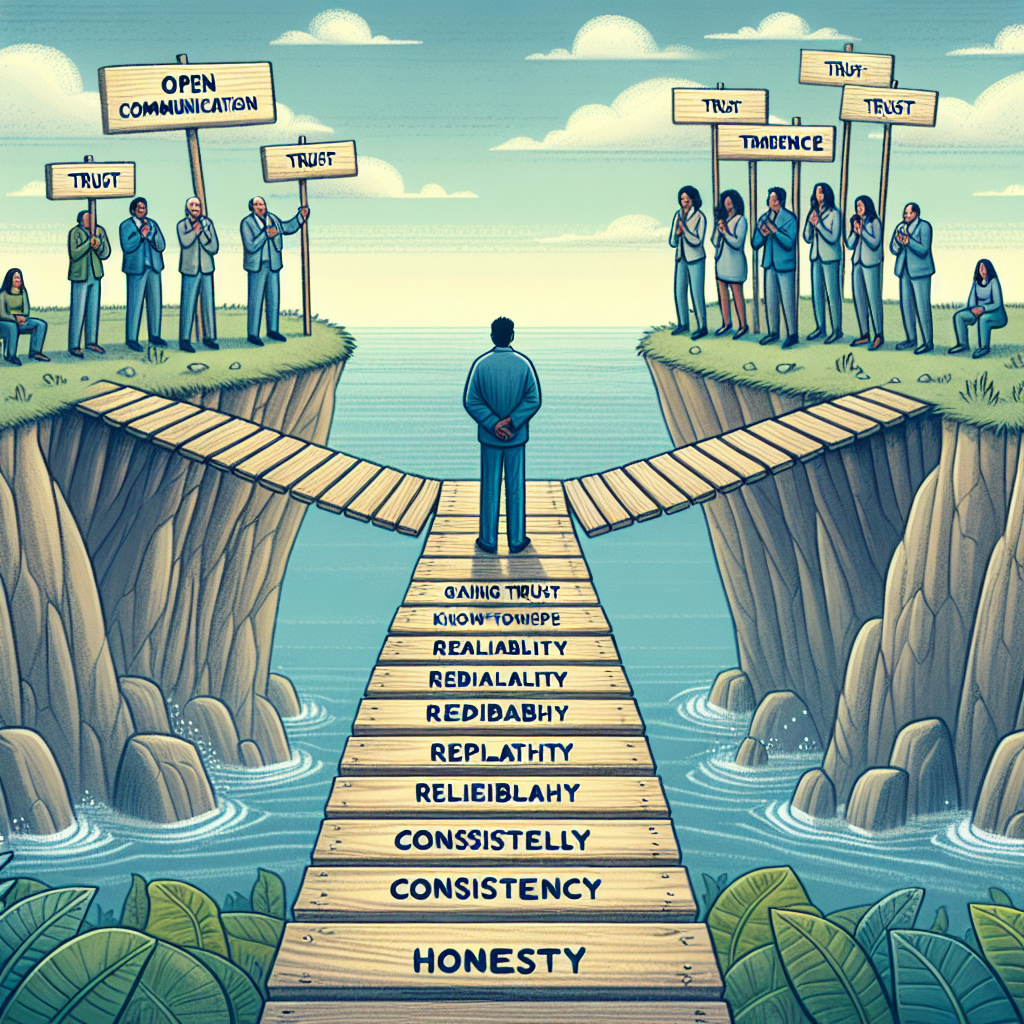
How to gain trust
Understanding the Importance of Trust
Trust is the foundation of any strong relationship, whether personal or professional. It influences how we interact with others, makes collaboration possible, and fosters an environment of openness. Understanding how to establish and maintain trust is crucial in various aspects of life. In this article, we will explore the essence of trust, its significance, and practical steps to build it in different contexts.
Why Trust Matters
Our ability to work together without conflict largely relies on our mutual trust. When trust is present, communication flows freely, decisions are made more efficiently, and group cohesion strengthens. On the contrary, a lack of trust can lead to misunderstandings, gossip, and an overall toxic atmosphere.
Types of Trust
Trust can be divided into different categories based on the context in which it is established:
- Interpersonal Trust: Trust between individuals, essential in personal relationships.
- Institutional Trust: Trust in organizations or systems, vital in professional settings.
- Self-Trust: Trust in oneself, which affects one's confidence and decision-making.
How to Cultivate Trust in Personal Relationships
Establishing trust in personal relationships is paramount, whether with family, friends, or romantic partners. Here are some effective strategies:
1. Communicate Openly
Open communication ensures both parties feel heard and understood. Engage in active listening, validating each other’s feelings, and sharing thoughts without fear of judgment. This transparency fosters closeness and trust.
2. Be Reliable
Consistency is vital when building trust. Keep your promises and be dependable in your actions. When your loved ones can rely on you, it shows that you value them and their needs.
3. Show Vulnerability
Being vulnerable can be scary, but it forms deep connections. Sharing fears and insecurities encourages others to do the same, leading to a stronger bond based on mutual understanding.
Building Trust in Professional Settings
Trust is equally important in professional environments. Whether leading a team or collaborating with colleagues, fostering trust can enhance productivity and morale.
1. Lead by Example
As a leader, demonstrating integrity and ethical behavior encourages others to follow suit. By showcasing honesty, accountability, and transparency in your actions, you establish a standard of behavior.
2. Encourage Collaboration
Creating a collaborative environment builds trust among team members. Encourage open dialogue and creative problem-solving, allowing everyone to contribute. When individuals feel their input is valued, trust grows.
3. Provide Constructive Feedback
Regularly offering constructive feedback helps team members improve and shows that you are invested in their growth. This approach creates a culture of openness and encourages others to support one another.
The Role of Trust in Parenting
Trust significantly impacts the relationship between parents and children. Building a trusting environment can lead to healthier family dynamics.
1. Establish Consistent Rules
Children thrive on structure and knowing what to expect. Establish clear expectations and be consistent in enforcing them. This provides a sense of security that fosters trust.
2. Be Approachable
Create an atmosphere where children feel safe discussing their thoughts and feelings. Encourage them to come to you with their concerns without the fear of judgment or punishment.
3. Recognize Achievements
Celebrate your child’s successes, however small. Acknowledgment builds their confidence and encourages them to strive for more, promoting a trusting and supportive relationship.
Challenges in Gaining Trust
Building trust isn't always smooth sailing; various challenges can arise:
1. Past Disappointments
“Trust is like a paper; once it's crumpled, it can’t be perfect again.”
Past betrayals can make it difficult for individuals to open up and trust again. Patience and understanding are crucial when rebuilding trust after a significant breach.
2. Miscommunication
Misunderstandings can lead to distrust. Being proactive in clarifying any confusion can help mitigate potential conflicts and portray transparency.
3. Different Expectations
People may have different ideas of what constitutes trust. Discussing these expectations openly can align perspectives and prevent issues from arising.
Practical Steps to Gain Trust
Now that we've discussed the importance of trust and its challenges, let’s look at actionable steps on how to gain trust effectively.
- Be Honest: Always strive for honesty in your interactions.
- Show Empathy: Understand and respect others’ feelings and perspectives.
- Keep Your Word: Follow through on commitments and promises.
- Respect Boundaries: Everyone has their limits; acknowledging them fosters trust.
- Admit Mistakes: Acknowledge and take responsibility for errors.
Conclusion
Trust is a vital component in all relationships, influencing how we interact and communicate with others. Whether in personal settings, the workplace, or parenting, the ability to gain trust opens doors to deeper connections and more effective collaboration. By employing the strategies discussed in this article, you can foster an atmosphere of trust that benefits everyone involved.
Remember, trust is built over time through consistent actions and open communication. It may take time to establish, especially if past experiences have led to skepticism. However, with patience and effort, anyone can learn how to gain trust in their relationships.
```By Guest, Published on October 1st, 2024